When it is time to make breakfast, what do you think of? Coffee and eggs? Perhaps a banana? What about your favorite dinner? Pizza and chocolate cake? Chicken and rice? Meat and potatoes? Today, many people eat foods from all over the world. However, this has not always been possible. In the past, these familiar foods were not available everywhere.
2 A big change occurred about 500 years ago, when people from the Old World began to explore the New World. They found many unfamiliar kinds of food in the New World. They found potatoes, peanuts, tomatoes, chilies, corn, and chocolate. Today, many of these New World foods are very common in Europe and Asia.
3 The explorers brought food from the Old World with them. There were many foods that the people in the New World did not have at that time. For example, there was no milk, cheese, or bananas. People of the New World did not raise animals for food. Instead, they hunted wild animals as well as birds and insects. They did not raise chickens, cows, pigs, or sheep. These animals came to the New World with European explorers.
4 Between the fifteenth and seventeenth centuries, explorers from Europe and Asia brought plants from their countries. They started to grow these plants - wheat, apples, and sugar cane -in the New World. These crops are now very common in North and South America. Today, some countries in the New World are the biggest producers of crops that began in the Old World. For example, Brazil is the worlds biggest producer of coffee, a crop that began in the Old World. (See Table 3.1.)
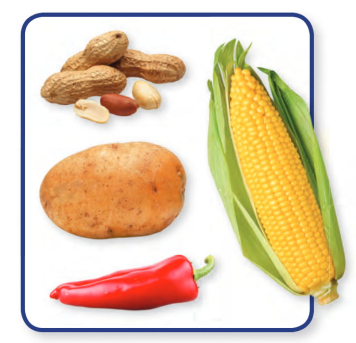
5 This exchange of foods went in both directions. The explorers also brought new foods back to their countries. They planted crops such as corn and potatoes, which became very important in the Old World. Many New World crops are easy to grow even when the soil and weather are not good. New World crops like potatoes could also feed a lot of people. This increase in food helped the worlds population grow quickly in the eighteenth and nineteenth centuries.
Table 3.1 Foods of the Old World and New World
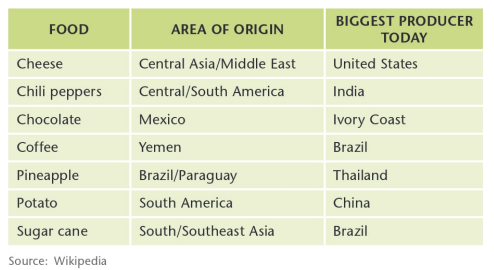
6 Some New World foods, like corn and potatoes, were available to almost everyone in the Old World. However, other foods from the New World, like chocolate and pineapples, were only for rich people. They did not grow in the Old World, so they were rare. Poor people could not pay for them. In the seventeenth century, pineapples were so valuable that people did not eat them. They put them on their tables, like flowers.
7 Many different foods are available all over the world today, so it is sometimes difficult to remember that this was not always true. Thirty percent of all food plants in the world today came from the New World. Think about ice cream. Three of the most popular flavors of ice cream are vanilla, chocolate, and strawberry. All three of these flavors are from plants. Five hundred years ago, these plants grew only in the New World. Next time you make dinner or a snack, think about how much of it has its origins in the New World.
Here are the main ideas of paragraphs 2-6 in Reading 1. Match each paragraph to its main idea. Write the number of the paragraph on the blank line.
----23456 A Some New World crops were very successful in the Old World.
----23456 B Before explorers came to the New World, many familiar foods of today were not available in the New World.
----23456 C People from the Old World planted crops in the New World.
----23456 D Before explorers came to the New World, many familiar foods of today were not available in the Old World.
----23456 E Some New World crops were very expensive in the Old World.
A Closer Look
Look back at Reading 1 to answer the following questions.
1. Before the fifteenth century, many familiar foods were not available to everyone in the world. True or False? (Par. 2) ----FalseTrue
2. What kinds of animals did people in the New World raise for food? (Par. 3) ----abcd
a Sheep
b Pigs
c Chickens
d None of these
3. What were some reasons for the success of potatoes in the Old World? Put a tick (v) in the correct answer (Par. 5)
-----v a They are easy to grow.
-----v b They are not expensive.
-----v c They can grow in bad weather.
-----v d They can feed a lot of people.
4. What was one result of the success of these New World crops? (Par. 5) ----abcd
a No one was hungry.
b The population increased.
c Some foods became too expensive for poor people.
d People stopped planting Old World crops.
5. Coffee is one New World food that was available only to rich people. True or False? (Par. 6) ----FalseTrue
6. Brazil is the largest producer of sugar cane. True or False? (Fig. 3.1) ----FalseTrue
7. According to the whole reading, were the following foods originally from the Old World or the New World? Write O (for Old World ) or N (for New World ) on the blank lines.
----NO a corn ----NO e potatoes
----NO b chocolate ----NO f sugar cane
----NO c bananas ----NO g tomatoes
----NO d apples
There are many verb + noun collocations in Reading 1. The verbs from the reading are in the left-hand column of the chart, and the nouns are in the top row. Put a check (v) in the columns to make collocations from the reading. Some of the verbs make collocations with more than one noun.
| |
breakfast |
dinner |
food |
plants |
crops |
animals |
| eat |
-----v |
-----v |
-----v |
-----v |
-----v |
-----v |
| grow |
-----v |
-----v |
-----v |
-----v |
-----v |
-----v |
| hunt |
-----v |
-----v |
-----v |
-----v |
-----v |
-----v |
| make |
-----v |
-----v |
-----v |
-----v |
-----v |
-----v |
| plant |
-----v |
-----v |
-----v |
-----v |
-----v |
-----v |
| raise |
-----v |
-----v |
-----v |
-----v |
-----v |
-----v |

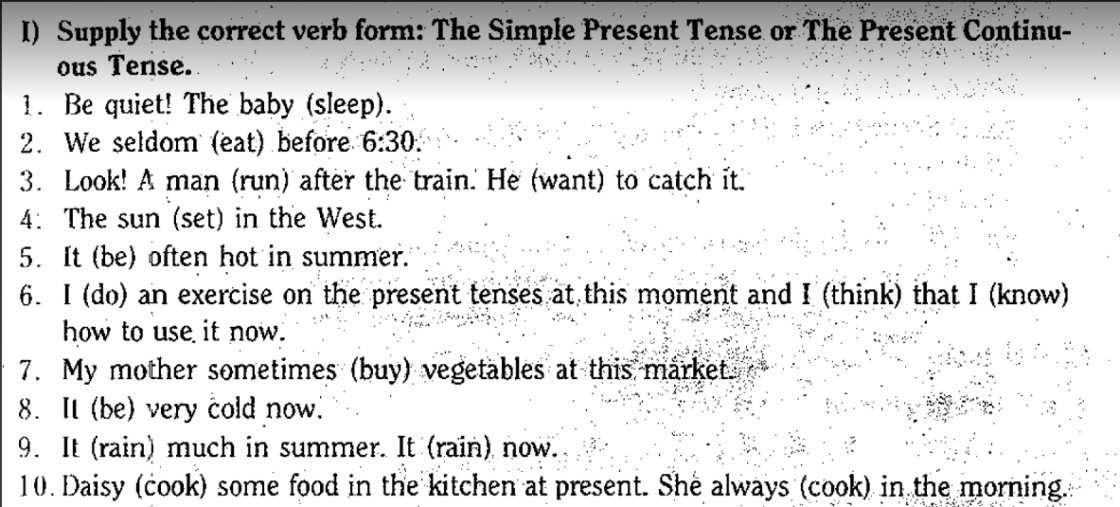
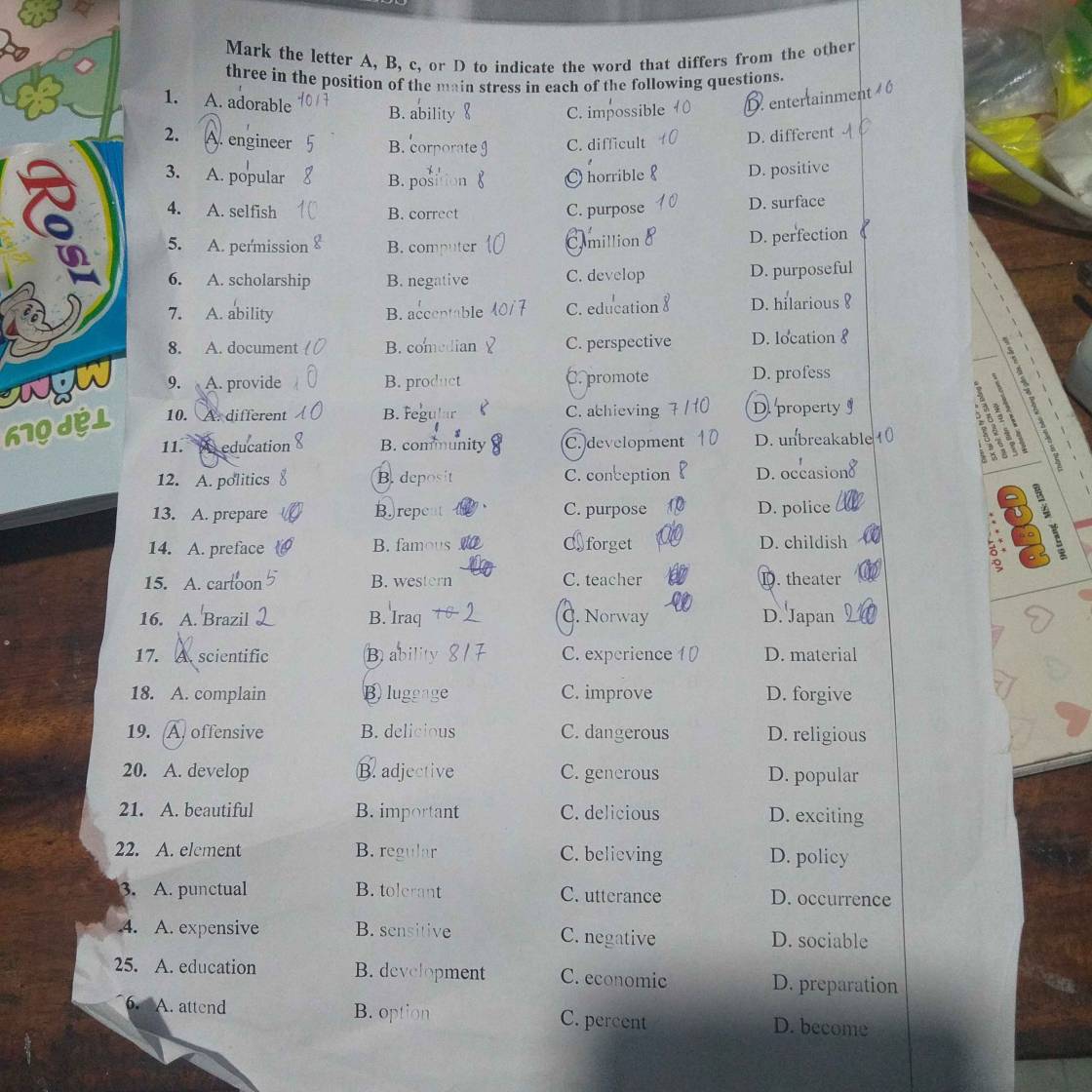
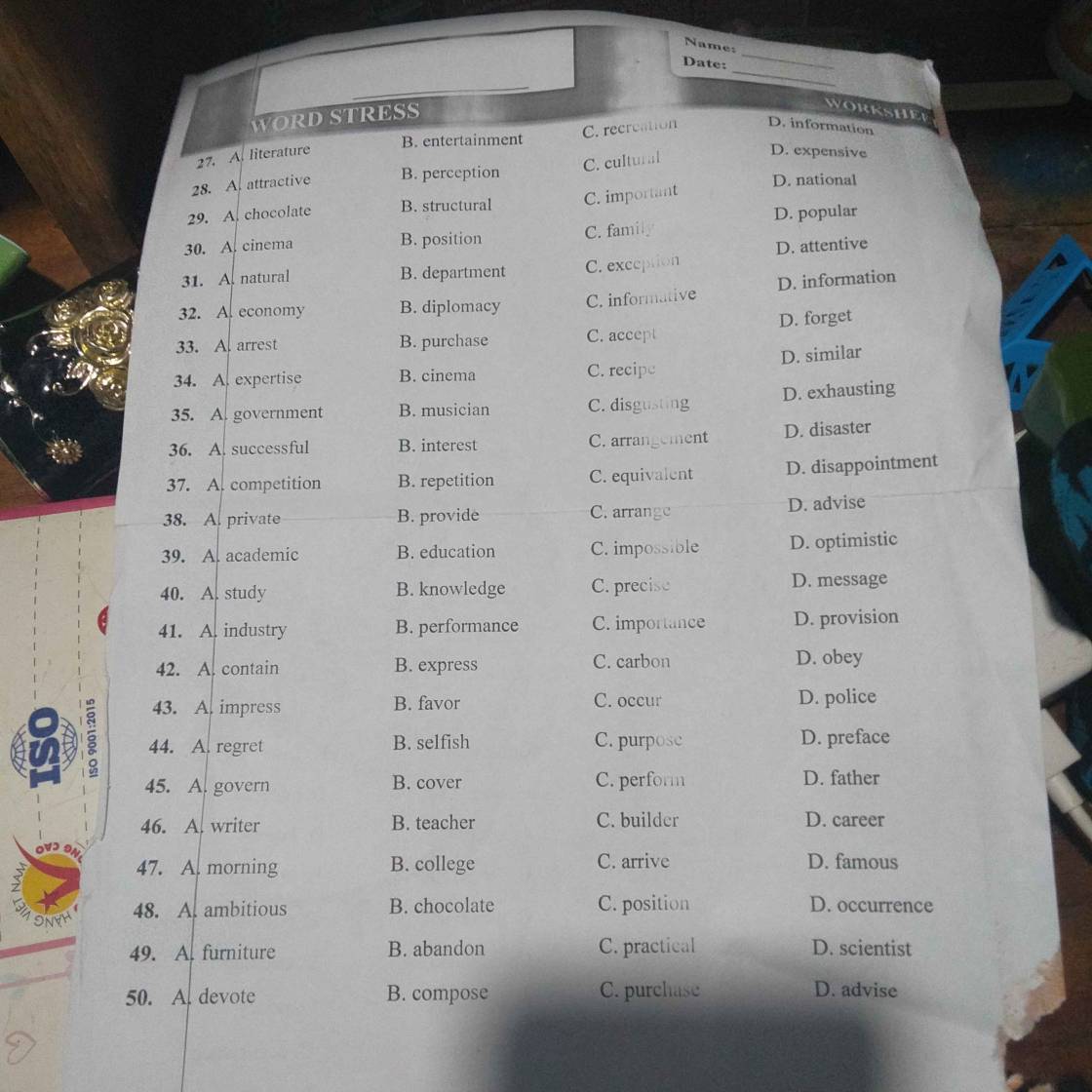
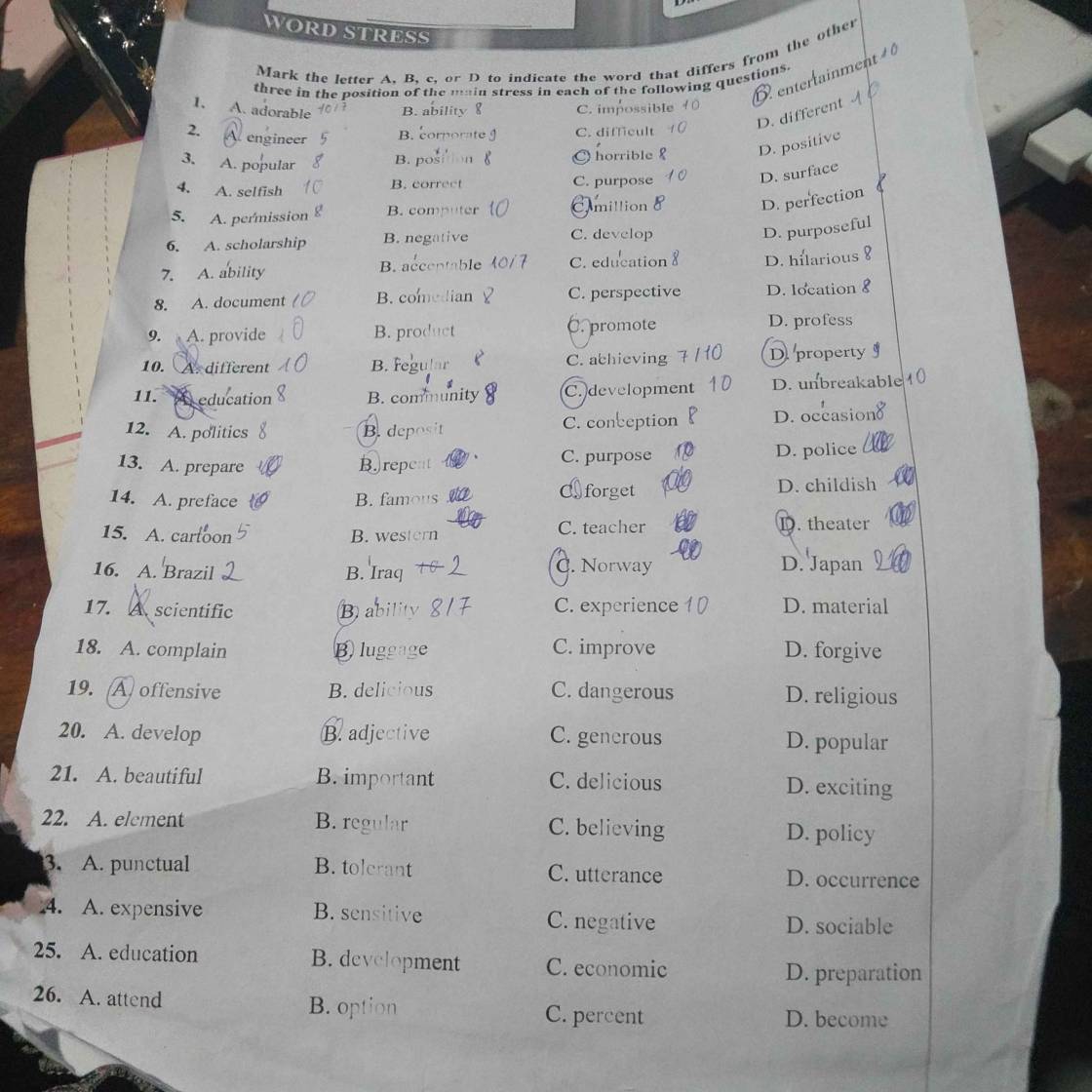
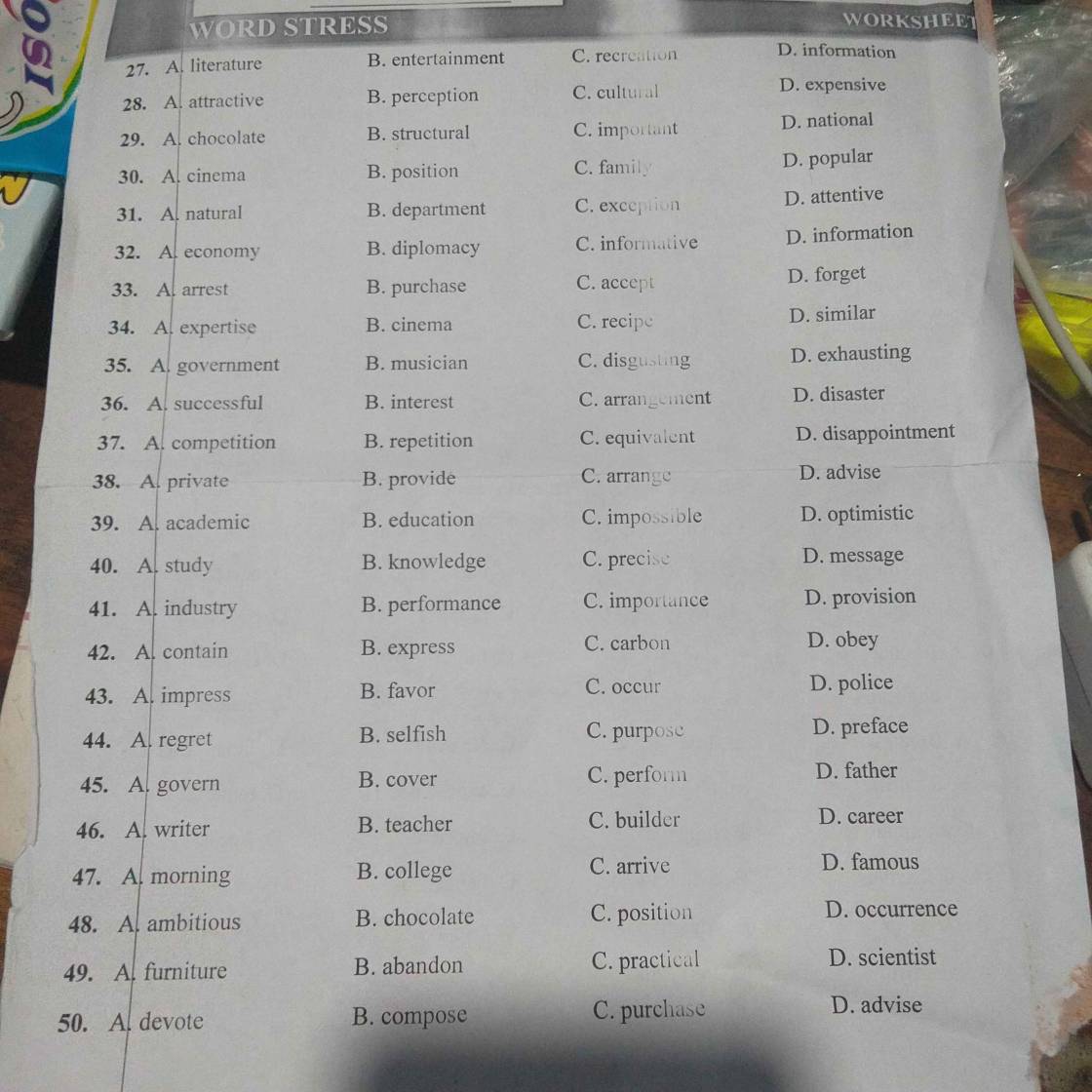


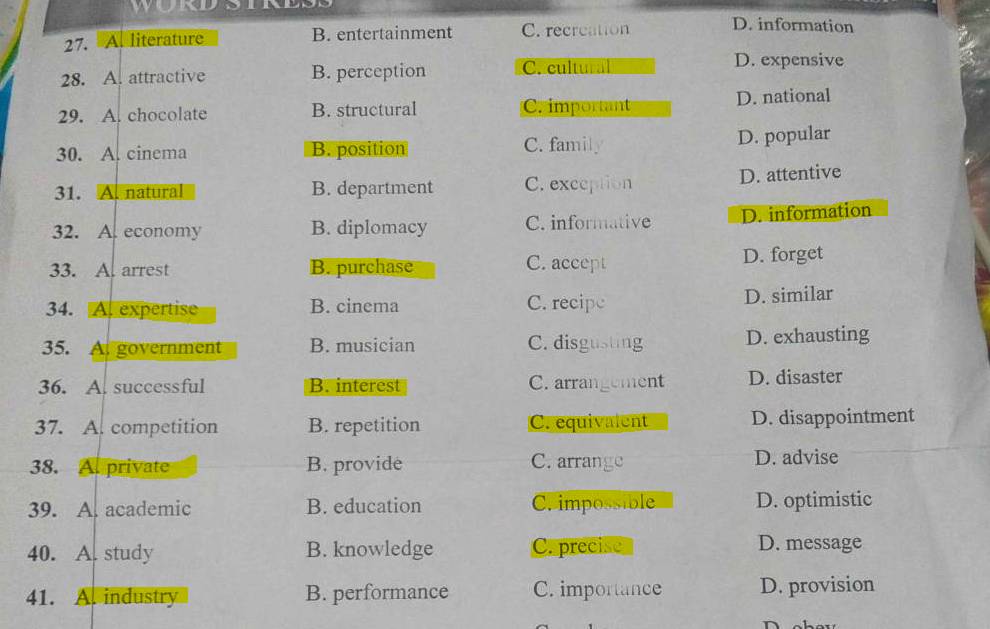
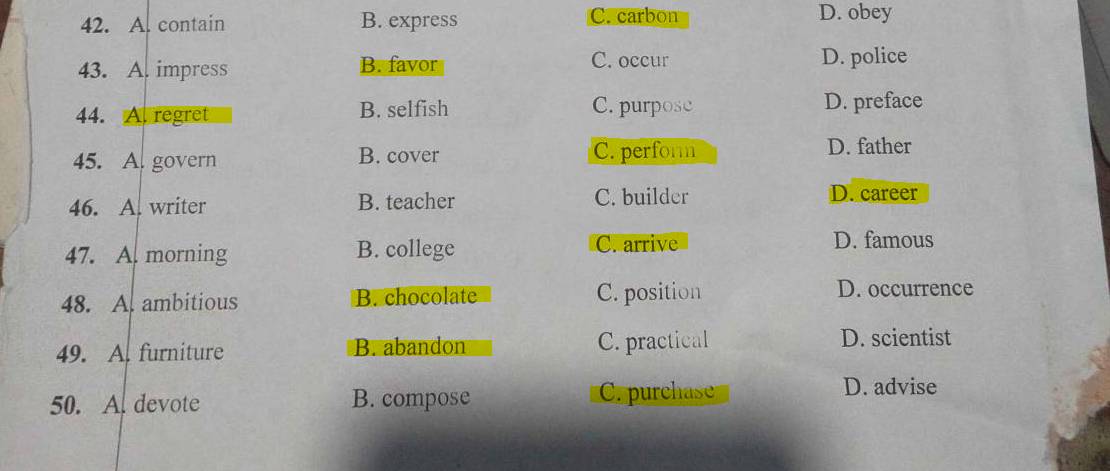
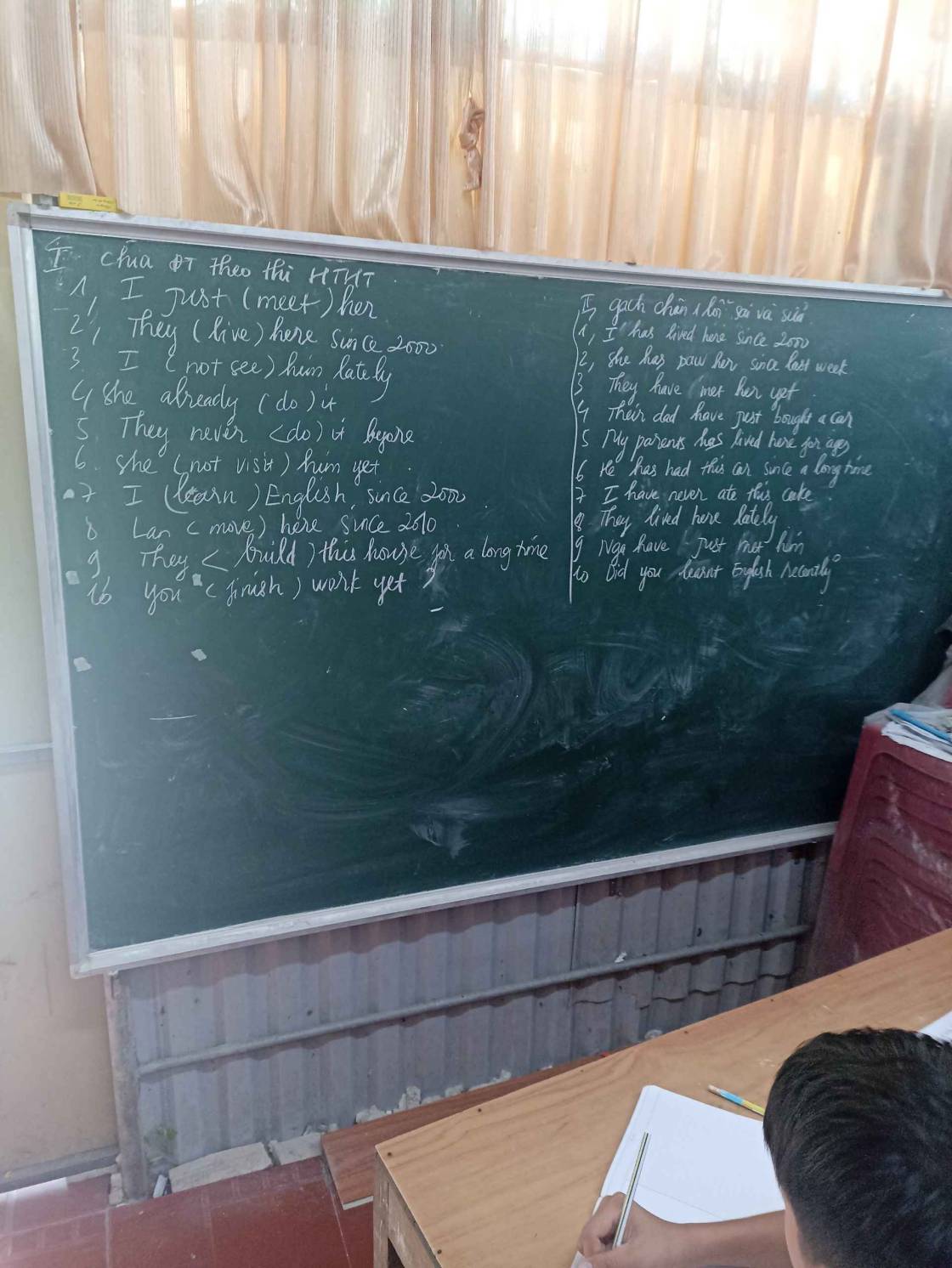



1 dislikes preparing
2 Do you enjoy doing
3 having
4 not socialising
5 explaining
6 fancies listening
7 loves spending
8 love trying
9 driving
10 not going
#\(yGLinh\)
1.my mother (dislike/prepare)...dislike preparing......the meals.
2 (enjoy/do).....Do you enjoy doing.....DIY in your freetime ?
3.I detest (have)..having.........a conversation with John
4.do you think Jane prefers (not socialise)....not socialising.....with other students ?
5.I don't mind (explain).....explaining...the problem again